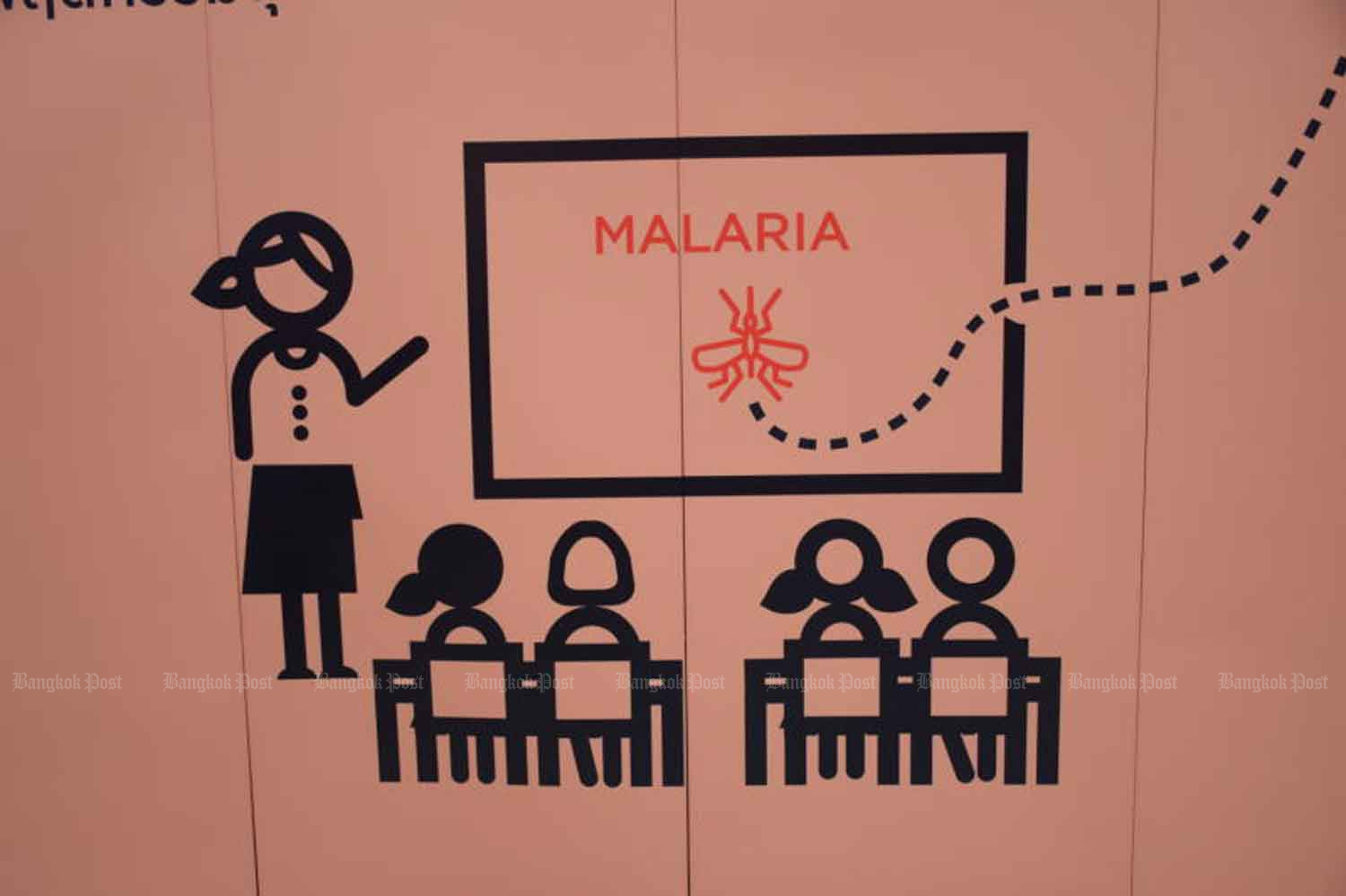
The government's commitment to eradicating malaria by 2024 is facing a tough challenge. The infection rate this year is 2.5 times higher than last year, with 8,229 cases and counting.
Rungrawee Tipmontree, chief of the Malaria Taskforce of Vector-Borne Diseases Division at the Public Health Ministry's Department of Disease Control, said one reason was due to the large number of people crossing from Myanmar to Thailand.
Tak province has the highest number of infections, up by 100% so far on last year's tally, she said. The other areas that have seen infections rise sharply are provinces along the border including Mae Hong Son, Kanchanaburi, Ratchaburi and Prachuap Khiri Khan province, she said.
Another challenge is that over 90% of infected people are asymptomatic and merely serve to silently spread the disease, she said.
She said the department and its alliances set up the Malaria Post project to open malaria clinics and recruit volunteers to help find infections in their communities by using rapid diagnostic tests (RDTs).
The volunteers will also help distribute medicine to patients, she added.
The volunteers also follow up with patients to make sure that there is no Plasmodium parasite left in their system -- as Anopheles mosquitoes can spread the disease to uninfected individuals after feeding from an infected patient.
"The fact is that we can't eradicate mosquito-borne malaria and the border is the highest risk area because dense forests in mountainous areas make perfect habitats for mosquitos.
"Also, people's mobility along the border is hard to control. Some are disease carriers. We are still facing a stiff challenge in eradicating the disease," she said.
The jump in infections
Since Thailand announced its National Malaria Elimination Strategy in 2016 in which the government pledged to eliminate domestic infections by 2024, cases fell from 35,911 in 2012 to 5,433 in 2019, according to the Department of Disease Control.
During the Covid-19 pandemic when people weren't able to move around as much, the number of infections dropped significantly to 3,944 cases in 2020 and 3,268 cases last year. However, once the pandemic situation eased, numbers jumped 151% to 8,229 cases this year.
Due to the large number of infections this year, the department will ask the United States Agency for International Development (USAID) to donate 4,000 bottles of artesunate, an antimalarial medication to treat severe cases. The previous lot of 3,000 bottles is finished, said Ms Rungrawee.
Vaccine is the hope
Speaking at the 20th International Congress for Tropical Medicine and Malaria last week, Alongkot Ponlawat, chief of the vector biology and control section at the Department of Entomology at the US Army Medical Directorate of the Armed Forces Research Institute of Medical Sciences (USAMD-AFRIMS), said the US and Thailand have been cooperating on research and development into the prevention and treatment of tropical diseases, especially malaria, for over six decades.
That cooperation also included malaria vaccine development, in which USAMD-AFRIMS applied a technology used in the mRNA Covid-19 vaccine for malaria in the hope of getting an outcome soon.
"Malaria is one of the most dangerous mosquito-borne diseases, leading to the death of one person every three minutes. So, we do need to develop technology or products for disease prevention," he said.
"It is a complicated issue because different mosquito species need different methods to eradicate them."
Col Matthew A Levine, director of USAMD-AFRIMS, said climate change plays a role in human health.
Meanwhile, research professor Jetsumon Sattabongkot Prachumsri, director of the Mahidol Vivax Research Unit of the Faculty of Tropical Medicine, Mahidol University, said the World Health Organization (WHO) has recommended the use of malaria vaccine RTS,S on children living in malaria-endemic areas in Africa.
Although the vaccine does not fully protect children it can reduce severe symptoms and prevent fatalities.
She said her research team is now conducting a laboratory test for an mRNA-based malaria vaccine against the parasite Plasmodium vivax, which is mostly found in Asia and Latin America.
"We expect to complete the lab study in 2023. If it works well, we will test the vaccine efficacy in monkeys in the year 2024-2025 before starting a clinical test in humans," she said.